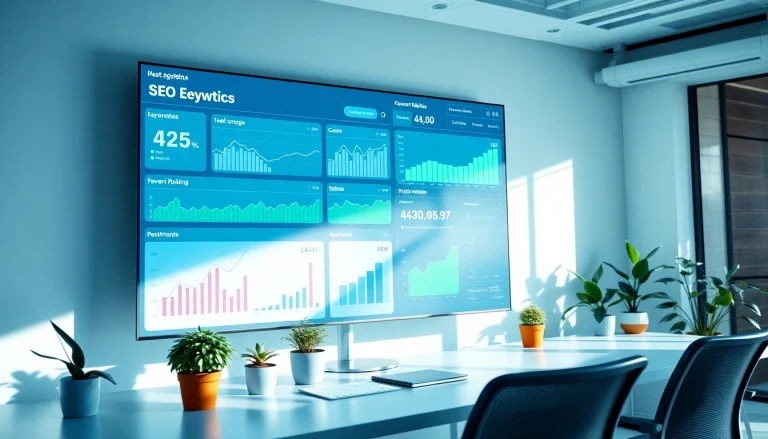Understanding Wholesale Real Estate Cold Calling
In the world of real estate, the term “wholesaling” refers to the process of acquiring properties below market value and then quickly selling them to investors or buyers for a profit. This operation relies heavily on outbound marketing, particularly cold calling. Cold calling is the practice of reaching out to potential sellers or buyers without prior engagement. For many, it’s a daunting endeavor, yet wholesale real estate cold callers are the unsung heroes who help bridge the gap between motivated sellers and eager investors. By mastering the art of cold calling, wholesalers can effectively establish relationships and drive business success.
What Is Wholesale Real Estate?
Wholesale real estate involves finding properties that are nominally undervalued, contacting the owners, and acting as an intermediary between sellers and buyers. Wholesalers often negotiate contracts that allow them to purchase properties at a lower price and then assign these contracts to buyers, typically real estate investors looking for renovation projects. The wholesaler profits from the difference between the contracted price with the seller and the price paid by the investor.
The Role of Cold Callers in Real Estate
Cold callers play a pivotal role in wholesale real estate. They actively seek leads by reaching out to property owners, gauging their interest in selling, and initiating conversations that could lead to deals. Successful cold callers must not only have a strong understanding of the real estate market but also be equipped with the skills to engage prospects effectively. They serve as the first point of contact, and their ability to foster rapport can determine the success of a wholesale transaction.
Common Misconceptions About Cold Calling
Many people harbor misconceptions about cold calling, viewing it as intrusive and ineffective. However, effective cold calling, especially in real estate, is less about pushy selling and more about providing value and solutions. It’s important for cold callers to legitimize their outreach by positioning themselves as helpful resources. Additionally, the fear of rejection can often hinder potential callers, when in reality, even experienced professionals experience a high rate of declined calls. Understanding these facets can help new wholesalers build resilience and strategies that enhance their calling efforts.
Essential Skills for Effective Wholesale Real Estate Cold Callers
Building Rapport Over the Phone
Building rapport is crucial in cold calling, particularly in the realm of wholesale real estate. Establishing a connection with the individual on the other end of the line is the first step in turning a cold call into a warm lead. This can be achieved through a combination of active listening, empathy, and genuine engagement. Callers should aim to ask open-ended questions and express authentic interest in the seller’s situation to create a more meaningful dialogue.
Effective Communication Techniques
Communication in cold calling goes beyond just speaking; it’s about conveying messages clearly and persuasively. Successful wholesalers tend to adopt a conversational tone rather than a hard-sell approach. Techniques such as mirroring the seller’s speech patterns and maintaining a positive attitude can significantly impact the reception of your call. Additionally, structuring calls to include an introduction, value proposition, and a clear call to action can guide the seller toward the desired response.
Handling Objections Gracefully
Objections are a natural part of the cold calling process. Instead of perceiving objections as roadblocks, skilled cold callers view them as opportunities to provide further information and build credibility. Common objections may include, “I’m not interested” or “I’m happy with my current situation.” Responding to these concerns with understanding and offering tailored solutions can help overcome resistance. Preparing rebuttals for typical objections before making calls can also equip wholesalers to feel more confident and composed during conversations.
Creating an Impactful Cold Calling Script
Key Components of a Successful Script
An effective cold calling script serves as a roadmap for navigating conversations with potential sellers. Key components include a concise introduction that states your name and purpose, a brief mention of how you found the seller’s contact information, and a clear value proposition that speaks to the seller’s motivations. Additionally, have a series of questions prepared to guide the conversation while ensuring space for spontaneous dialogue.
Personalizing Your Approach
Personalization is vital when engaging sellers during cold calls. Use any available information—such as the property address or seller’s name—to create a more tailored experience. This can significantly improve engagement and lead to better conversation flow. By referencing specific details about the property and its potential value, callers can demonstrate that they have done their homework, making the conversation more relevant and engaging.
Examples of Successful Cold Calling Scripts
A successful cold calling script can vary depending on the audience and market conditions, but here’s a foundational example:
- Introduction: “Hi [Name], this is [Your Name] from [Your Company]. We specialize in helping homeowners sell their properties quickly and easily for cash.”
- Value Proposition: “I noticed your property at [Address]. If you’re open to it, I’d love to discuss any options you have for selling it.”
- Questions: “What has your experience been with the property? Are there any repairs or issues you’ve been considering?”
This script can be adapted based on the responses and flow of the conversation, allowing for flexibility and responsiveness.
Best Practices to Enhance Cold Calling Efficiency
Utilizing Technology for Seamless Outreach
In today’s digital world, technology can enhance the efficiency and effectiveness of cold calling strategies. Utilizing CRM (Customer Relationship Management) software allows wholesalers to track interactions with leads, schedule follow-ups, and analyze performance metrics. Additionally, automated dialing software can improve efficiency by minimizing the time spent manually dialing numbers. There are various tools and platforms designed specifically for real estate cold calling that can streamline this process, ensuring that every potential lead is tapped effectively.
Timing and Frequency of Calls
Timing can greatly impact the success of cold calling efforts. Research suggests that the best times to call potential sellers are during the late hours of the business day or on Wednesdays and Thursdays, which statistically show higher response rates. Establishing a consistent call schedule can also build momentum and create routine, allowing call sessions to become a familiar part of the wholesaler’s daily routine.
Tracking and Measuring Success
Measuring the success of cold calling initiatives can help wholesalers refine their strategies over time. Key metrics to analyze include the number of calls made, conversations held, leads generated, and deals closed. By collecting and reviewing this data regularly, wholesalers can identify trends, refine their approach, and optimize their scripts to better resonate with potential sellers.
Advice from Top Wholesale Real Estate Cold Callers
Real-World Success Stories
Learning from successful wholesalers can offer valuable insights into effective cold calling strategies. Many top performers started with brief call sessions, often dedicating only a few hours per day at the outset. As their confidence grew, they were able to expand their cold calling efforts significantly. Success stories often highlight the importance of persistence and adaptability. For example, one wholesaler shared how they converted a rejected call into a successful deal by following up with the seller after a few months, learning that their circumstances had changed.
Lessons Learned from Mistakes
The path to success in cold calling isn’t without its challenges. Many experienced cold callers underscore the significance of learning from their missteps. Common mistakes include not preparing adequately for calls, failing to listen actively, and overlooking follow-ups. Reflecting on these experiences helps wholesalers refine their techniques, focusing on the aspects that drive more successful conversations and outcomes.
Tips for Newbies in Cold Calling
For those new to cold calling within the wholesale real estate niche, several tips can boost confidence and effectiveness:
- Start Small: Begin with a manageable number of calls per day to build confidence.
- Practice Your Script: Role-play scenarios to refine delivery and become familiar with potential objections.
- Stay Positive: Rejections are part of the process, and a positive mindset helps maintain momentum.
- Network with Other Wholesalers: Sharing experiences and learning from others can provide valuable insights and moral support.
By adhering to these practices and constantly striving for improvement, emerging wholesalers can transition into highly effective cold callers and significantly enhance their business outcomes.








